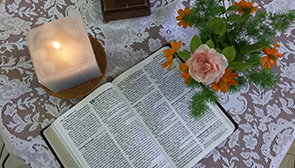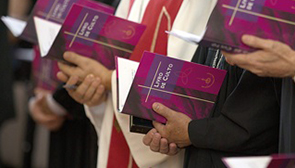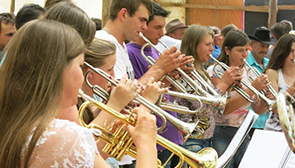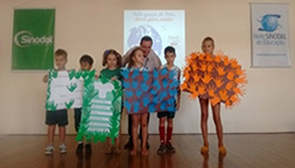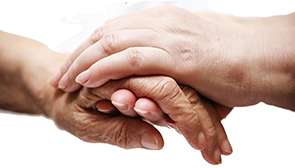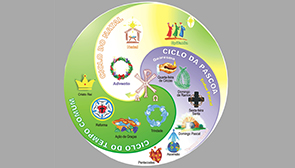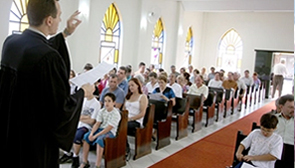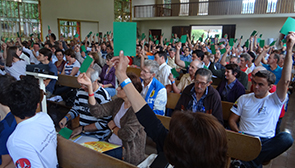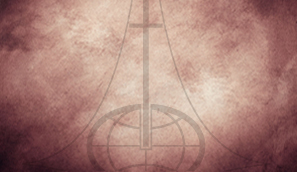
Rev. Soliette López
Iglesia Luterana “Fe y Esperanza” de Nicaragua, ILFE.
Traducción: Elisa Pérez Trejo.
Iglesia Luterana Mexicana, ILM.
John 9: 1-38
Jesus heals a man born blind.
Be Light in the Dark!
The text tells us about one of the miracles of Jesus, where a man who was born blind receives the gift of sight; and at the same time, it shows us the tireless insistence of the Pharisees to prosecute Jesus, let us remember that at that time tradition dictated that poverty and disease were considered a punishment for some sin committed, so that Jesus' act of healing It could be considered as a rebel, and that on the other hand, violated the laws of the time since the miracle was performed on a Saturday, the holy day of rest.
Let´s think think a bit:
1.-Who are the main characters in the story and what role does each one play?
2.-Let's think that he was not only in the dark and now had light, but he was also a blind man from birth who did not know about images, shapes, colors. How could the blind man's life have changed after he received his sight?
3.-What do you think of the reaction of their parents and the people who were amazed that the one who asked for alms now sees? They are filled with disbelief at the transformation of this known to them as a blind beggar. Some wonder if the healed man is just someone who looks like him. What prevents parents from being happy about their child's healing?
Let's read the text again and focus on the following verbs / actions:
• See: The text begins by saying that Jesus SAW a man who was blind from birth
• Make it evident: Jesus responds when his disciples asked him who had sinned and said Neither he sinned, nor his parents, but this happened so that the work of God would become evident in his life.
• Carry Out: Jesus Reveals His Mission “While it is daylight, we must carry out the work of the one who sent me. Night is coming when no one can work. As long as I am in the world, I am the light of the world.
• Believe: I believe, Lord, the words of the blind man who had been healed.
Let us bear in mind that in the same way that the blindness, poverty, leprosy, of that time, in these difficult times that we are living worldwide, the COVID19 Pandemic has also been considered by some a divine punishment, I invite you to make your reflections taking into account those who are discriminated against and marginalized in this situation. Now use the following questions to ponder:
1. What character in the story do you identify with and why?
2. Who are those in the area where you live, in your work, in your church, in your country that you are not SEEING? Can you identify a person or group of people discriminated against or marginalized by society? Let us remember that we are experiencing moments of crisis due to the COVID19 Pandemic, which is highlighting the pre-existing ailments in the world, poverty, lack of access to education, violence against women, inequality, etc.
3. How could you from your pastoral ministry or your church make the Work of God evident in the lives of those you identified in the previous question?
4. What personal or group impediments / excuses do you identify that stand in the way of us and we as Christians to see the needs of others and take transformative actions?
5. What does the statement, I believe, Lord mean to you?
Shared personal reflection
In this world so full of injustices and pain, where many times we are like the parents of the one who had been blind who are afraid to glorify God for the good things he does in our lives or in the lives of our loved ones, it is always important remember that we too are called to be light in the darkness of the world. Many times we fear for fear of being rejected or frowned upon, or because we believe that the solution is not in our hands, or because we believe that what I can do is not enough.
This text is meaningful to me as it has marked my pastoral work with people with HIV, who were always told that their HIV positive condition was a divine punishment. And those who have been marginalized, rejected, violated, either because of their sexual preference, because of their level of education, because of their economic situation, and even because they are women. Many times I felt that I was very young, that I had no experience, that the stories were very painful and the problems of this group very great, and that there was nothing I could do, however, this text reveals that the miracle of Jesus from To restore sight to the blind is a liberating act, which should encourage us to remove the fear of being judged by the Pharisees for being with sinners and breaking the law, on the contrary, it encourages us to fight to remove that blindfold that as humans we have to judge our neighbors, a blindfold that does not allow us to SEE the reality that our brothers and sisters in Christ are living and suffering, that blindfold that blames the little ones and takes us away from our greatest example of love and sorry that is Jesus. Saying I believe, Lord and reaffirming yourself as Christians is not only a declaration of Faith, but also a commitment to follow Christ, and that means sowing the Word of God in hard hearts, bearing fruits of love, of solidarity, of empathy; feed the hungry, material or spiritual; accompany in pain those who suffer sharing hope in eternal life, vindicate and dignify women, serve our neighbors as an example of God's love in the world. When we are part of this liberation, we also become a means to make the work of God evident in the lives of the smallest and smallest through the fight for justice and dignity for all, each and everyone equally.


